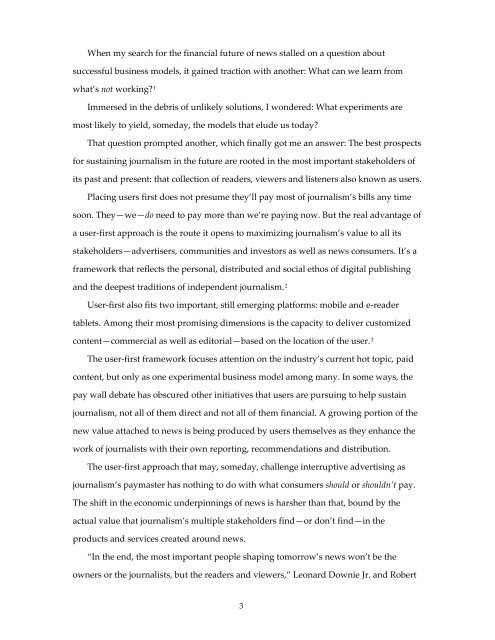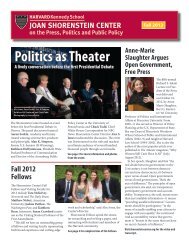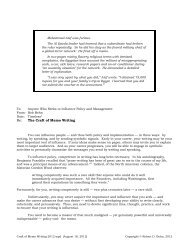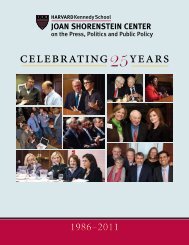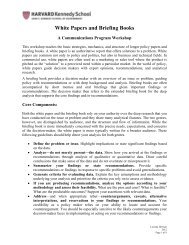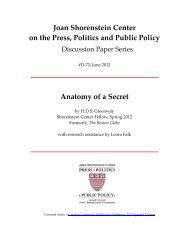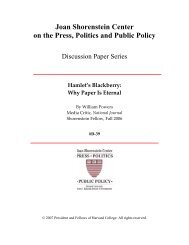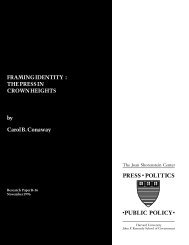A User-First Framework for Sustaining Local News - Harvard ...
A User-First Framework for Sustaining Local News - Harvard ...
A User-First Framework for Sustaining Local News - Harvard ...
Create successful ePaper yourself
Turn your PDF publications into a flip-book with our unique Google optimized e-Paper software.
When my search <strong>for</strong> the financial future of news stalled on a question about<br />
successful business models, it gained traction with another: What can we learn from<br />
what’s not working? 1<br />
Immersed in the debris of unlikely solutions, I wondered: What experiments are<br />
most likely to yield, someday, the models that elude us today?<br />
That question prompted another, which finally got me an answer: The best prospects<br />
<strong>for</strong> sustaining journalism in the future are rooted in the most important stakeholders of<br />
its past and present: that collection of readers, viewers and listeners also known as users.<br />
Placing users first does not presume they’ll pay most of journalism’s bills any time<br />
soon. They—we—do need to pay more than we’re paying now. But the real advantage of<br />
a user‐first approach is the route it opens to maximizing journalism’s value to all its<br />
stakeholders—advertisers, communities and investors as well as news consumers. It’s a<br />
framework that reflects the personal, distributed and social ethos of digital publishing<br />
and the deepest traditions of independent journalism. 2<br />
<strong>User</strong>‐first also fits two important, still emerging plat<strong>for</strong>ms: mobile and e‐reader<br />
tablets. Among their most promising dimensions is the capacity to deliver customized<br />
content—commercial as well as editorial—based on the location of the user. 3<br />
The user‐first framework focuses attention on the industry’s current hot topic, paid<br />
content, but only as one experimental business model among many. In some ways, the<br />
pay wall debate has obscured other initiatives that users are pursuing to help sustain<br />
journalism, not all of them direct and not all of them financial. A growing portion of the<br />
new value attached to news is being produced by users themselves as they enhance the<br />
work of journalists with their own reporting, recommendations and distribution.<br />
The user‐first approach that may, someday, challenge interruptive advertising as<br />
journalism’s paymaster has nothing to do with what consumers should or shouldn’t pay.<br />
The shift in the economic underpinnings of news is harsher than that, bound by the<br />
actual value that journalism’s multiple stakeholders find—or don’t find—in the<br />
products and services created around news.<br />
“In the end, the most important people shaping tomorrow’s news won’t be the<br />
owners or the journalists, but the readers and viewers,” Leonard Downie Jr. and Robert<br />
3


